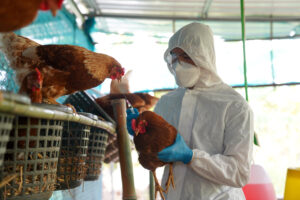html body .kc-css-169183{margin-top: 30px;padding-top: 38px;}html body .kc-css-104068 .section-title h2,html body .kc-css-104068 .title_tx h2{font-size: 1.4em;padding-top: 27px;}html body .kc-css-104068 .section-title h2 span,html body .kc-css-104068 .title_tx h2 span,html body .kc-css-104068 .em-icon i{color: #973333;}html body .kc-css-507070 .divider_inner{border-color: #fcb100;border-style: solid;}html body .kc-css-793968.kc_title,html body .kc-css-793968 .kc_title,html body .kc-css-793968 .kc_title a.kc_title_link{font-size: 1.2em;}html body .kc-css-279319 .divider_inner{border-color: #fcb100;border-style: solid;}html body .kc-css-15532{background: rgba(245, 253, 255, 0.37);margin-top: 24px;padding-top: 24px;}html body .kc-css-575246.kc_title,html body .kc-css-575246 .kc_title,html body .kc-css-575246 .kc_title a.kc_title_link{padding-top: 0px;margin-top: -40px;}

The Title
Key Points:
Key Points:
- In today’s Recommendations for Industry, we discuss the efficacy of the COVID vaccines against the current variants. Read more below.
- The NYT has also put out an article on “Can the COVID Vaccine Protect Me Against Virus Variants?”
- In non-COVID news and essential in the public health realm, the WHO has released a report highlighting that there has been little progress in developing new and desperately needed antibiotics to fight against drug-resistant infections. See the WHO review here. See CIDRAP’s summary
- In a recent CVS Health discussion, the CEO of Pfizer has said that it might be likely a third dose of COVID-19 vaccinations will be needed within the next 6 – 12 months. He also echoes another aspect of what TAG has mentioned before; an annual COVID-vaccine will likely need to be received (just as with the flu vaccine).
- Many factors are influencing why young Brazilians are being hit harder by COVID-19.
- Aljazeera discusses why Canadian Atlantic provinces have been able to control COVID-19 more effectively than other areas of Canada – a lot related to “strong communication, collaboration, and cooperation between public health authorities”.
Recommendations for Industry
How Effective Are the COVID Vaccines Against the Variants?
As with many aspects of COVID-19, we are still learning a great deal about the variants and how they impact the efficacy of currently authorized vaccines. Several studies are in progress, with many not yet having published results. Many studies we have seen have focused more on lab-based assessments of neutralizing activity rather than epidemiologic assessments of efficacy in vaccinated people. Still, there is a lot we can learn from them.
One study out of South Africa showed only slight decreases in the efficacy of the Pfizer and Moderna vaccines against the B.1.1.7 (first detected in the U.K.), B.1.351 (first detected in South Africa), and P.1 (first detected in Brazil) variants. However, the efficacy of the AstraZeneca vaccine was significantly reduced and up to completely ineffective against B.1.351. Additionally, clinical trials found the efficacy of these vaccines, as well as the Johnson & Johnson, to be lower when tested in the midst of transmission of the B.1.351 variant in South Africa than in trials conducted in countries with preexisting variants.The report, available at NEJM , contains more in-depth information as well as a comparison table.
In another report found in the media, that has not been fully scientifically evaluated, studies from Israel suggested that individuals vaccinated with the Pfizer vaccine were not well protected against the B.1.351 variant.
Researchers are continuing to study the efficacy of the vaccines against current variants as well as other factors that could make existing vaccines more resilient, such as mimicking how natural immunity caused by infection can sometimes offer broad protection. For example, one study found that some people who recover from COVID-19 make antibodies that may be even more effective at blocking the variants over time than vaccines.
Overall, there is an emerging pattern in which some variants are more resistant to some of the vaccines. It appears that variant B.1.351 is currently the variant causing the most concern. While this variant is not yet predominant in the U.S., we know it has been found in some states. Thus, continued surveillance and assessment of this risk will be needed going forward. The emergence of new variants will continue globally, as it will be several years before we see widespread vaccinations in developing countries.
In Case You Missed It
- In Wednesday’s Recommendations for Industry, we discussed this week’s risk matrix and how to answer your employees’ questions on the J&J vaccine. You can read more here.
- The Johnson & Johnson vaccine’s use in the U.S. is currently paused as there is investigation for blood clots.
- Instead of focusing preventive measures on location, Germany’s government has “approved a measure that would give the federal government more power to impose nationwide measures to curb the country's rising cases, which would replace a patchwork system based on state laws”, Deutche Welle reports.
- Russia’s Suptnik V vaccine has been deemed safe and works similarly to Oxford-AstraZeneca’s vaccine, too! BBC breaks down how the Russian vaccine works.
- Sweden currently has the highest number of new COVID-19 cases per person in Europe at 625 new infections per 1M people.
- The NIH has begun its trial of anti-CD14 antibodies to treat COVID-19 respiratory disease. Read the news release here.
- Moderna’s stocks are rising after the company has tested two updated vaccines leading to increased antibody levels against viral mutations (in mice).
- Two new studies out of Isreal have found that newborn of COVID-vaccinated moms may be protected from infection. In one, antibodies pass from mothers to infants in breast milk for 6 weeks post-vaccination and in the other, infants breast-fed by COVID-positive mothers “had evidence of infection”. CIDRAP reports this here.
- India has seen its highest day rise of COVID (on Tuesday) as millions test positive during the annual festival of Kumbh. (CNN / BBC)
- In Brazil, younger people are following sick to COVID-19 with over half of ICU patients (in the last month) being less than 40 years old.
- The world is back on the move again. In the Heathrow Airport (UK), travelers had to wait up to 6 hours (BBC). With this, there is an increase in fake COVID-19 certificates in which airlines have to be aware of (Washington Post)!
- We have updated the 50-State Food and Agriculture Worker Vaccination Eligibility Chart. In all states (except for Vermont and Rhode Island), food and agriculture workers can be vaccinated (be they in food/ag manufacturing, food service, or food retail). In both Vermont and Rhode Island, vaccinations for food and ag works is still age-based. In Rhode Island, individuals over 40 can be vaccinated, in Vermont, individuals over 30 years old can be vaccinated. To see the latest chart, please see here. (Please note: we have amended an error with New Jersey; New Jersey is vaccinating all food and agriculture workers as of March 29, 2021).
- In Monday’s Recommendations for Industry, we discuss the global status of COVID-19. Click here to read more.
- TAG has released a toolkit for “Dialing Back” that provides recommendations on phased-in reopening. Contact TAG if you are interested.
- The Defense Department is trial testing new technologies to cure COVID-19 patients; in a recent test, a military spouse underwent dialysis in which COVID-19 was filter and removed from her blood. She has recovered from COVID-19.
- Michigan’s current COVID-19 crisis may portend to what the U.S. may look like in a few weeks. Currently, Michigan, Florida, Minnesota, and Massachusetts have the highest number of variant cases in the country. Additionally, the new surge of cases in Michigan (over the past few weeks) have been identified in people from their 30’s to 50’s (a much younger population than previously at the start of the pandemic) who have yet to receive a vaccine. These individuals are being sickened and hospitalized at increasing rates. The dominant variant that has been identified is the B.117 variant. CNN discusses this further.
- A few studies exploring the relationship between Oxford AstraZeneca’s vaccine and blood clots have been released. CIDRAP summarizes these studies and the findings here.
- Al Jazeera summarizes the current learnings of the B1351 COVID-19 variant first identified in South Africa. This variant contains two mutations (N501Y & E484K) that could enhance transmissibility and allow the virus to evade “parts of the immune system and antibodies”. This could portend to increasing transmissibility and would require further investigation. There are mixed studies on the efficacy of the Pfizer vaccine to be protective against this variant.
- The Chinese-developed COVID-19 vaccine efficacy is “not high”. Chinese officials are considering methods to bolster its efficacy with either additional doses, increased doses, different intervals of vaccination, and/or mixing vaccines of different technologies.
- Internationally: Germany’s COVID-19 cases surpass 3 million. Additionally, India’s COVID-19 cases has now surpassed that of Brazil’s to become the second most affected country in the world.





